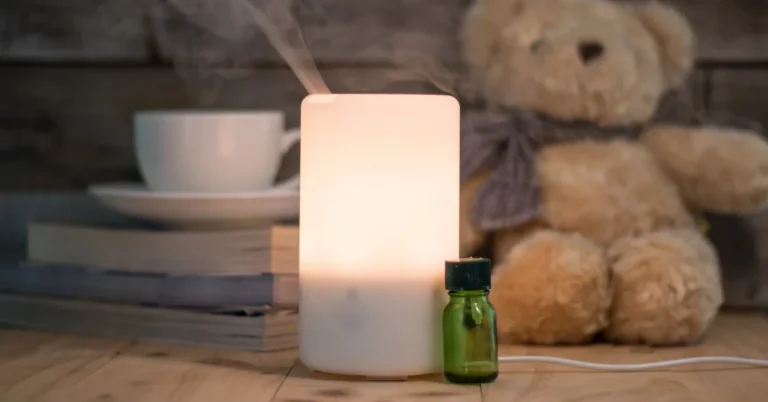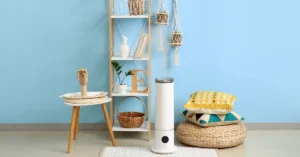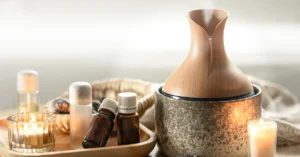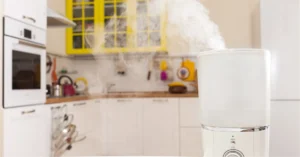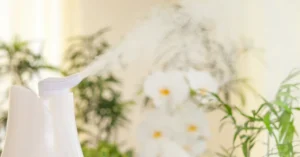Introduction
Ever wondered if adding a few drops of your favorite essential oil to your humidifier could create that perfect spa-like vibe in your home? You’re not alone! Many people are turning to essential oils to enjoy their therapeutic benefits, and it seems logical to combine them with a humidifier. After all, why not moisturize the air while spreading a calming scent? But here’s the thing—you might be surprised to know that most humidifiers aren’t designed to handle essential oils. In fact, doing so could harm your device and even affect the air you breathe.
In this post, we’ll dive into whether you can safely use essential oils in your humidifier, the potential risks involved, and smarter, safer alternatives to achieve the perfect balance of humidity and scent in your space. Let’s clear the air!
Can You Use Essential Oils in a Humidifier?
The idea of combining essential oils with your humidifier might sound like a match made in heaven. Moist air that’s also fragrant with soothing scents? Yes, please! However, the reality is a bit more complicated.
Most standard humidifiers are designed to add moisture to the air and nothing more. When essential oils are introduced into the mix, several things can happen—none of them great.
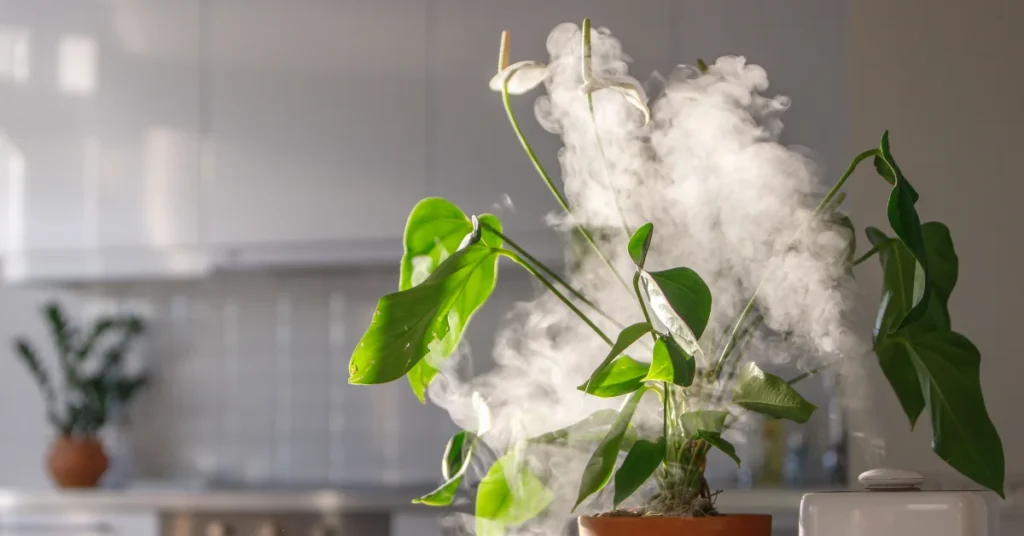
How Humidifiers Work
Humidifiers, whether cool mist, warm mist, or ultrasonic, work by converting water into vapor to raise the humidity in your room. The type of mist they create depends on the model, but the goal is the same: to improve air quality, especially in dry environments. The problem is, they aren’t equipped to handle oils.
What Happens When You Add Essential Oils to a Humidifier?
- Clogging and Damage: Essential oils are thick and can leave a residue on the internal parts of your humidifier, such as the water tank and misting mechanism. This can cause blockages and ultimately damage the device.
- Health Risks: Since humidifiers aren’t designed to disperse oils evenly, you could end up inhaling concentrated particles, which may irritate your lungs or trigger allergies.
- Mold and Bacteria Growth: Oils can mix with water in a way that encourages mold or bacterial growth inside the device, leading to poor indoor air quality.
It’s clear that while it might be tempting to add essential oils to your humidifier, it’s usually not the best idea. But don’t worry—there are alternatives that work just as well, if not better!
Types of Humidifiers and Their Compatibility with Essential Oils
Before you decide whether or not to use essential oils in your humidifier, it’s important to understand how different types of humidifiers function. Each type of humidifier interacts differently with essential oils, but for most models, adding oils can lead to problems.
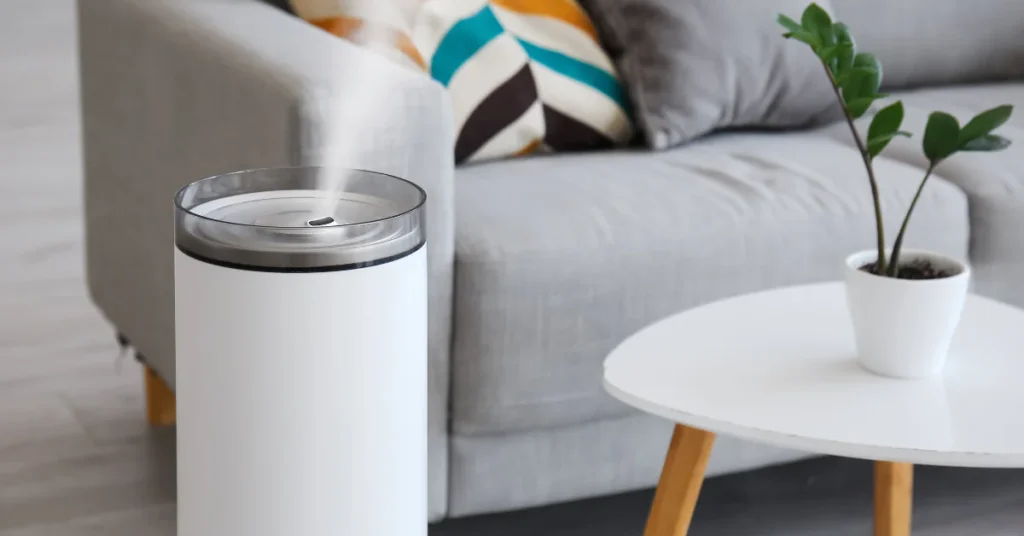
1. Cool Mist Humidifiers
Cool mist humidifiers are one of the most common types found in households. They use a fan to blow air through a moist wick or use ultrasonic vibrations to create a fine mist. However, these devices are not built to handle essential oils. The oils can coat the filter and fan parts, causing blockages and reducing the humidifier’s efficiency.
In short, adding essential oils to a cool mist humidifier can cause damage, clogging, and the need for frequent cleaning. So, it’s best to keep oils far away from this type.
2. Warm Mist Humidifiers
Warm mist humidifiers use a heating element to boil water, releasing steam into the air. While you might think the heat could help disperse essential oils more effectively, that’s not the case. The high temperature can actually break down the oil’s compounds, making the scent weaker and less beneficial. Plus, just like with cool mist models, the oils can stick to internal components and shorten the humidifier’s lifespan.
3. Ultrasonic Humidifiers
Ultrasonic humidifiers use vibrations to create water droplets and push mist into the air. These are very efficient for humidity, but again, not great for essential oils. The fine mist may seem like a good carrier for oil particles, but over time, the oils can damage the delicate parts inside the machine, leading to expensive repairs or replacements.
Risks of Using Essential Oils in Humidifiers
While essential oils are known for their therapeutic benefits, using them in a regular humidifier can come with a handful of risks. Whether it’s the health of your device or your own, it’s important to understand the potential downsides.
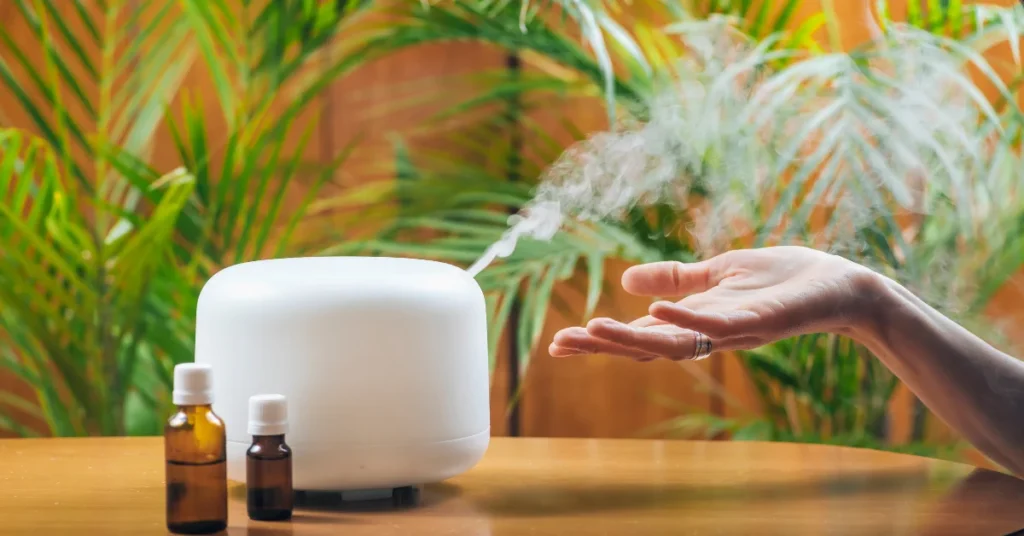
1. Damage to the Humidifier
As mentioned earlier, essential oils can leave a sticky residue on the internal components of your humidifier. This can lead to:
- Clogging of the misting mechanism: Oils can build up on the ultrasonic plates or fan, reducing the effectiveness of the humidifier over time.
- Corrosion of plastic parts: Some oils are highly concentrated and can corrode the plastic components inside the humidifier, shortening the device’s lifespan.
- Frequent cleaning needs: If you do use oils in a standard humidifier, you’ll notice that it requires much more frequent and intensive cleaning to prevent build-up.
2. Health Hazards
Humidifiers aren’t designed to diffuse oils evenly into the air, which can result in concentrated oil particles being released into your home. This poses several health risks:
- Respiratory irritation: Inhaling concentrated essential oil particles, especially for those with asthma or allergies, can irritate the respiratory system.
- Allergic reactions: Certain oils, when improperly dispersed, can trigger allergic reactions in sensitive individuals.
- Overexposure to strong scents: Since the humidifier doesn’t break the oils down properly, the scent can become overwhelming and may cause headaches or nausea.
3. Mold and Bacteria Growth
When essential oils mix with water, they don’t always disperse evenly. Instead, they can create pockets of stagnant water inside the humidifier, which encourages mold and bacteria to grow. This not only affects the performance of the humidifier but can also result in poor air quality, making your home less healthy
Clearly, using essential oils in most standard humidifiers comes with some significant risks. But don’t worry, there are better options available for safely enjoying the benefits of essential oils!
Safe Alternatives to Using Essential Oils in a Humidifier
If you love the idea of enjoying the benefits of essential oils without the risk of damaging your humidifier or impacting air quality, there are safer and more effective options available. Here are a few tried-and-true methods:
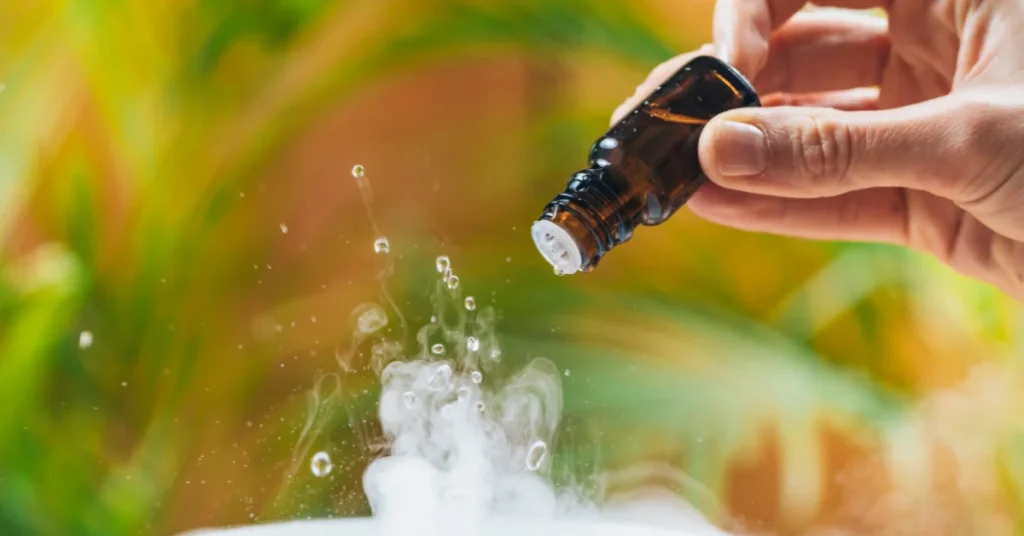
1. Use a Diffuser Instead
Diffusers are specifically designed to disperse essential oils into the air in a safe and controlled way. There are several types of diffusers available, each with unique benefits:
- Ultrasonic diffusers: These work similarly to humidifiers, using water to break down essential oils into a fine mist. They double as mini humidifiers, adding a small amount of moisture to the air while diffusing the oils.
- Nebulizing diffusers: These break essential oils into tiny particles without using water. They offer a stronger, purer scent but don’t humidify the air.
- Heat diffusers: These use heat to evaporate essential oils, filling your space with their fragrance. Be mindful that heat may slightly alter the oil’s composition.
Diffusers come in a range of styles and sizes, so it’s easy to find one that matches your home’s decor and needs.
2. Humidifiers with Built-in Diffusers
If you still want to combine the benefits of a humidifier with essential oils, look for models designed with a built-in essential oil tray. These hybrid devices allow you to add oils without them coming into contact with the water tank or internal parts. They keep the oil and water separate, making sure the humidifier stays safe while you enjoy the aroma.
These combo units are ideal for those who want both humidity and fragrance, but don’t want to invest in separate devices.
3. DIY Aromatherapy Hacks
If buying new gadgets isn’t on your to-do list, there are other simple ways to enjoy essential oils in your home:
- Apply oils to cotton balls: Place a few drops of essential oil on a cotton ball and tuck it inside the air vent of your humidifier. This can subtly scent the air without causing any damage.
- DIY room sprays: Mix a few drops of essential oil with water in a spray bottle to create your own natural air freshener.
- Steam inhalation: If you want the benefits of essential oils during a cold or congestion, add a few drops of oil to a bowl of hot water and carefully inhale the steam—just make sure to do this away from your humidifier!
By using one of these safer alternatives, you can enjoy the benefits of essential oils without damaging your humidifier or putting your health at risk.
Conclusion
While it might seem like a great idea to add essential oils to your humidifier, the truth is that most humidifiers aren’t built to handle oils safely. Adding them could result in damage to your device, health risks, and even mold growth. Fortunately, there are safer and more effective alternatives, like using a dedicated diffuser or a humidifier designed specifically for essential oils.
If you’re looking to enjoy the benefits of essential oils, such as relaxation, improved focus, or natural air freshening, it’s best to invest in a diffuser or a hybrid humidifier with an oil tray. This way, you can create the perfect atmosphere without worrying about damaging your equipment or compromising your air quality.
